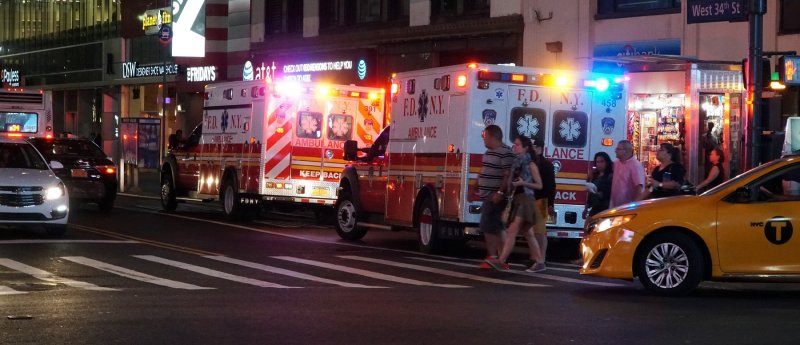 Mental and Behavioral Health
Mental and Behavioral Health
-
Community Justice and Public Safety“Once You’re Arrested, You Lose So Much”: A Photovoice Study on the Pretrial Experience in New Jersey
This report examines the far-reaching consequences of justice system involvement on mental health, physical health, and well-being.
May 1, 2024
|Evidence
| -
Mental and Behavioral HealthEquity considerations in mental health diversion in California
Mental health diversion under California Assembly Bill (AB) 1810 created a pretrial pathway for individuals to enroll in community-based treatment as an alternative to incarceration if they have a mental illness that played a significant role in the crime for which they were charged.
March 19, 2024
|Evidence
| -
Income and WealthShort-term effects of the earned income tax credit on mental health and health behaviors
Building on prior conflicting studies in the International Journal of Epidemiology and the American Journal of Epidemiology, researchers Daniel F. Collin, Laura S. Shields-Zeeman, Akansha Batra, Anusha M. Vable, David H. Rehkopf, Leah Machen, and Rita Hamad evaluated seasonal variation in the health effects of the EITC among U.S. adults in this study published in Preventive Medicine.
October 1, 2020
|Evidence
| -
Income and WealthCan Economic Policies Reduce Deaths of Despair?
William H. Dow, Anna Godoey, Christopher Lowenstein and Michael Reich released a National Bureau of Economic Research Working Paper investigating whether “deaths of despair” respond to two key policies that raise incomes for low-wage workers: the minimum wage and the Earned Income Tax Credit (EITC).
April 29, 2019
|Evidence
| -
Income and WealthFailing health of the United States
Last week, an editorial on the decline in US life expectancy, authored by P4A codirector Laudan Aron and Stephen Woolf, director of the Center on Society and Health at Virginia Commonwealth University, was published in the British Medical Journal.
February 13, 2018
|P4A Spark
| -
 Mental and Behavioral HealthShocking drop in life expectancy shows US still in bad health
Mental and Behavioral HealthShocking drop in life expectancy shows US still in bad healthFive years ago, a groundbreaking report showed people in the US in worse health and dying younger than those in other rich nations. Today, despite the alarm the report generated, we learned that life expectancy in the country declined for a second year in a row – astonishing by any standard.
January 16, 2018
|P4A Spark
| -
 Nutrition and Physical ActivityFor socially isolated seniors, Meals on Wheels delivers more than food
Nutrition and Physical ActivityFor socially isolated seniors, Meals on Wheels delivers more than foodAs we close out Older Americans Month, we reflect on how Meals on Wheels—and programs like it—can offer critical support for its clients’ physical and mental health.
May 31, 2017
|P4A Spark
| -
The research will examine the impact of policies that preempt instruction on racial justice and health equity in Iowa school districts.
May 15, 2024
| -
Community Justice and Public SafetyNew Jersey Criminal Justice Reform Advancing Racial Equity (NJ CARE) Study
The research team will work with individuals with lived experience in the justice system to contribute to a participatory action research-informed approach, with the goal of understanding how the impacts and policy changes uncovered translate into the human experience—including implications for well-being, health, and mental health.
October 1, 2021
|Has Evidence
| -
Mental and Behavioral HealthCalifornia Diversion: Mental Health, Racial Equity, and Criminal Court
This research will provide actionable results as counties develop their mental health diversion policies and procedures in accordance with AB 1810, particularly as courts re-open in the wake of COVID-19. In so doing, this project will not only benefit racial justice in the criminal legal system in California but also efforts to pursue racial equity through the increased use of mental health diversion nationwide.
September 1, 2021
|Has Evidence
| -
Children and FamiliesHow the Opioid Epidemic Impacts ChildrenThe impact of the opioid epidemic on children, their families, and on child-serving systems (early childhood education, schools, child welfare, etc.) is not well understood. This exploratory project will examine some of the most critical dimensions, urgent challenges, and important nuances for policymakers and others, drawing on a review of the existing literature and a deeper dive into two states at the forefront of the opioid epidemic.
December 1, 2015
| -
A growing literature has documented the detrimental effects of housing instability (often generated by evictions and foreclosures) on health. Using the RealtyTrac foreclosure dataset, which includes information on every foreclosure action in the U.S. between 2006 and 2015, the research team will match foreclosures with Medicaid address data and follow units through the foreclosure process (from initial notification that a mortgage holder is behind on their payments through repossession by the lender).
October 15, 2018
|